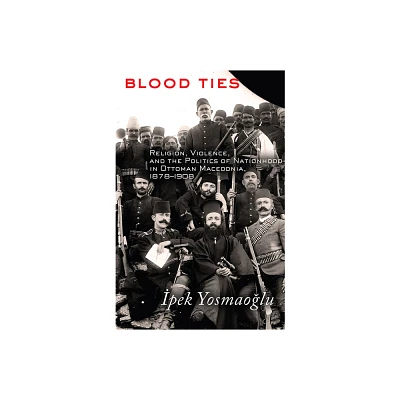Home
Blood Ties and the Native Son: Poetics of Patronage Kyrgyzstan
Loading Inventory...
Barnes and Noble
Blood Ties and the Native Son: Poetics of Patronage Kyrgyzstan
Current price: $80.00


Barnes and Noble
Blood Ties and the Native Son: Poetics of Patronage Kyrgyzstan
Current price: $80.00
Loading Inventory...
Size: Hardcover
*Product Information may vary - to confirm product availability, pricing, and additional information please contact Barnes and Noble
A pioneering study of kinship, patronage, and politics in Central Asia,
Blood Ties and the Native Son
tells the story of the rise and fall of a man called Rahim, an influential and powerful patron in rural northern Kyrgyzstan, and of how his relations with clients and kin shaped the economic and social life of the region. Many observers of politics in post-Soviet Central Asia have assumed that corruption, nepotism, and patron-client relations would forestall democratization. Looking at the intersection of kinship ties with political patronage, Aksana Ismailbekova finds instead that this intertwining has in fact enabled democratization—both kinship and patronage develop apace with democracy, although patronage relations may stymie individual political opinion and action.
Blood Ties and the Native Son
tells the story of the rise and fall of a man called Rahim, an influential and powerful patron in rural northern Kyrgyzstan, and of how his relations with clients and kin shaped the economic and social life of the region. Many observers of politics in post-Soviet Central Asia have assumed that corruption, nepotism, and patron-client relations would forestall democratization. Looking at the intersection of kinship ties with political patronage, Aksana Ismailbekova finds instead that this intertwining has in fact enabled democratization—both kinship and patronage develop apace with democracy, although patronage relations may stymie individual political opinion and action.










![Native Sons [Expanded]](https://prodimage.images-bn.com/pimages/5013929113596_p0_v1_s600x595.jpg)






